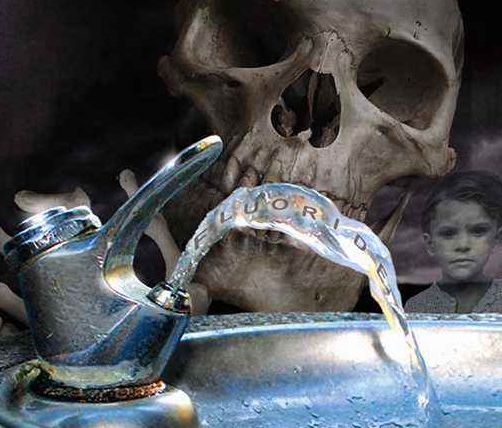Cancer risk from tap water much higher than previously believed… is your water truly clean?
09/23/2019 / By Ethan Huff

New research published in the open-access journal Heliyon reveals that “drinking water” from the tap isn’t all that drinkable after all, seeing as how it often contains carcinogenic chemicals that increase cancer risk in people exposed to it.
Over the course of a lifetime, warns the Environmental Working Group (EWG), the study’s author, simple exposure to carcinogenic tap water could be cumulatively linked to some 100,000 cancer cases over the course of a lifetime.
Even though this carcinogenic tap water technically meets federal guidelines for what’s considered “safe,” EWG researchers found that carcinogens like arsenic, as well as the byproducts of radionuclides such as uranium and radium, are, in fact, contributing to cancer at current levels.
“The vast majority of community water systems meet legal standards,” stated Olga Naidenko, vice president for science investigations at EWG. “Yet the latest research shows that contaminants present in the water at those concentrations – perfectly legal – can still harm human health.
To learn about ways to purify your tap water for safe drinking, be sure to check out WaterFilters.news.
Cancer-causing contaminants are present in nearly 50,000 community water systems throughout the U.S.
With funding from the Park Foundation, the EWG study identified 22 different contaminants with carcinogenic risks in 48,363 community water systems throughout the United States. Based on EWG’s calculations, this covers the water systems that service about 86 percent of the U.S. population.

Based on EWG’s cumulative risk assessment, this means that four out of every 10,000 people in America will develop cancer at some point in their life specifically as a result of exposure to toxic tap water.
An earlier EWG study looking at tap water safety in California arrived at similar conclusions, pinpointing carcinogens in tap water as a major driver of cancer.
“Drinking water contains complex mixtures of contaminants, yet government agencies currently assess the health hazards of tap water pollutants one by one,” notes Sydney Evans, the study’s lead author.
“In the real world, people are exposed to combinations of chemicals, so it is important that we start to assess health impacts by looking at the combined effects of multiple pollutants,” she adds.
Fluoride added to public water is another major cause of cancer
As we’ve covered in the past, fluoride is another cancer-causing chemical that’s deliberately added to drinking water throughout the U.S. under the guise of “preventing tooth decay.”
The California Environmental Protection Agency’s (EPA) Office of Environmental Health Hazard Assessment (OEHHA) has determined that artificial fluoride chemicals cause cancer by incorporation into bones, where they “stimulate cell division of osteoblasts [bone-forming cells].”
Fluoride also causes “genetic changes and other cellular changes leading to malignant transformation, and cellular immune response thereby increasing the risk of development of osteosarcomas,” the agency wrote in a reported entitled Evidence on the Carcinogenicity of Fluoride and Its Salts.
Even as the pro-fluoride lobby continues to deny these facts, increasingly more Americans are waking up and asking questions – which they should be doing, seeing as how cancer rates are increasingly exponentially in our chemical-saturated world.
While EWG suggests that consumers install advanced water filtration systems in their homes to mitigate these contaminants, the group, just like Natural News, would prefer to get to the bottom of both how and why these chemicals are getting into water systems in the first place.
“We need to prioritize source water protection to make sure that these contaminants don’t get into the drinking water supplies to begin with,” Naidenko proclaimed in a recent statement.
If you’re concerned about the safety of your own tap water, the Health Ranger Store has a really great water testing kit that you can use to identify the presence of heavy metals, and decide how to proceed.
Sources for this article include:
Submit a correction >>
Tagged Under:
cancer, chemicals, clean water, disease causes, Fluoride, tap water, toxic ingredients, water filters
This article may contain statements that reflect the opinion of the author




















